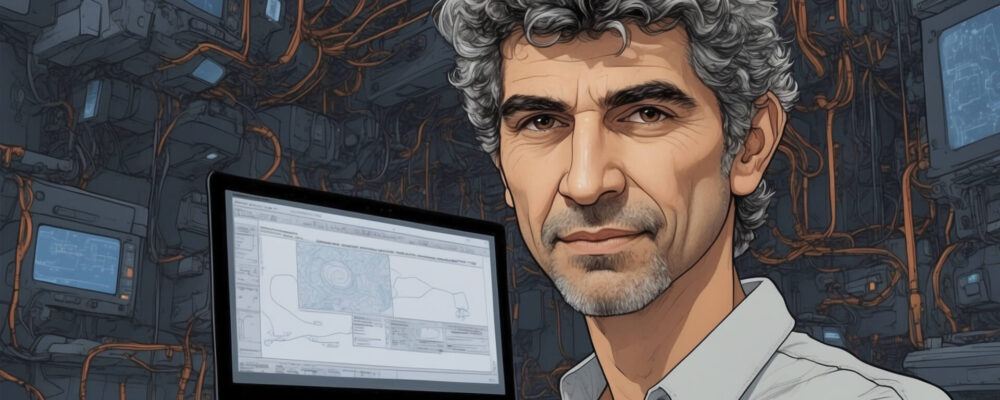Yoshua Bengio: The Pioneer of Deep Learning and Advocate for Ethical AI
Introduction
In the world of artificial intelligence (AI), few individuals have had as profound an impact as Yoshua Bengio. As one of the “Godfathers of AI,” Bengio’s pioneering work in deep learning has transformed how machines learn and process information, setting the stage for the AI revolution that is reshaping industries across the globe. Beyond his technical contributions, Bengio is also a leading voice in the ethical development of AI, advocating for transparency, fairness, and the responsible use of these powerful technologies.
But who is Yoshua Bengio, and how has he shaped the landscape of AI? This profile explores his journey, his groundbreaking contributions, and the lasting impact he continues to make on technology and society.
A Passion for AI: The Early Years
Yoshua Bengio’s journey into the world of artificial intelligence began with a deep curiosity about the nature of learning and intelligence. Born in Paris, France, and raised in Montreal, Canada, Bengio pursued his academic career in computer science at McGill University, where he earned his Ph.D. His early research focused on neural networks, a then-nascent field that sought to model the human brain’s ability to process information.
Despite initial skepticism from the broader scientific community, Bengio remained committed to his vision of creating systems that could learn and adapt like the human brain. His perseverance paid off, and his work laid the foundation for many of the advancements in AI that we see today.
The Rise of Deep Learning: Transformative Contributions
Yoshua Bengio is best known for his pioneering work in deep learning—a subset of machine learning that involves neural networks with many layers. His research has been instrumental in advancing our understanding of how machines can learn from large datasets, enabling breakthroughs in areas such as image and speech recognition, natural language processing, and autonomous systems.
One of Bengio’s most significant contributions is his work on neural probabilistic language models, which have revolutionized the way AI understands and generates human language. His research has also led to the development of algorithms that allow machines to learn representations of data, a concept that has become central to modern AI systems.
Leadership in AI: Founder of Mila and Global Influence
Yoshua Bengio’s influence extends far beyond his research. In 2015, he founded Mila, the Quebec AI Institute, which has grown to become one of the world’s largest and most respected academic research centers in deep learning. Under his leadership, Mila has attracted top talent from around the globe and has become a hub for collaboration between academia and industry.
As a professor at the University of Montreal, Bengio has mentored many of today’s leading AI researchers, further amplifying his impact on the field. His students and collaborators continue to push the boundaries of AI, building on the foundations that Bengio helped to establish.
Ethics and AI: A Vision for Responsible Innovation
While Yoshua Bengio is celebrated for his technical achievements, he is equally recognized for his commitment to the ethical development of AI. Bengio has been a vocal advocate for ensuring that AI technologies are developed in a way that benefits society as a whole. He has called for greater transparency in AI systems, the reduction of biases in machine learning models, and the creation of policies that promote fairness and accountability.
Bengio’s ethical stance on AI is not just theoretical; it is deeply integrated into his work at Mila and his public advocacy. He believes that as AI becomes more powerful, it is crucial to address the ethical challenges it presents, ensuring that these technologies are used to improve lives without exacerbating inequalities.
Recognitions and Achievements: A Legacy of Excellence
Yoshua Bengio’s contributions to AI have earned him numerous accolades, including the prestigious Turing Award in 2018, which he shared with Geoffrey Hinton and Yann LeCun. This award, often referred to as the “Nobel Prize of Computing,” recognizes his seminal work in deep learning and its transformative impact on technology.
In addition to the Turing Award, Bengio has been honored with the Officer of the Order of Canada and the Killam Prize for Engineering, among other distinctions. These recognitions highlight both his technical contributions and his leadership in the ethical development of AI.
The Future of AI: Yoshua Bengio’s Vision
As AI continues to evolve, Yoshua Bengio remains at the forefront of research and innovation. His current work focuses on unsupervised learning—teaching machines to learn from data without explicit labels—and on developing more efficient deep learning models. Bengio believes that unsupervised learning holds the key to creating truly intelligent systems that can understand and interact with the world in more human-like ways.
Looking ahead, Bengio envisions a future where AI technologies are integrated into society in ways that enhance human capabilities while respecting ethical principles. He continues to lead discussions on how AI can be developed and deployed responsibly, ensuring that it serves the common good.
Join the AI Revolution
Yoshua Bengio’s story is one of innovation, perseverance, and a deep commitment to improving the world through technology. His work has not only advanced the field of AI but has also set a standard for how these technologies should be developed and used.
If you’re inspired by Yoshua Bengio’s journey and want to stay at the cutting edge of AI developments, join us at AI Core Innovations. Here, we explore the latest in AI technology, share insights from industry leaders, and provide the resources you need to stay ahead in this rapidly evolving field. Sign up for our newsletter and be part of the AI revolution.

